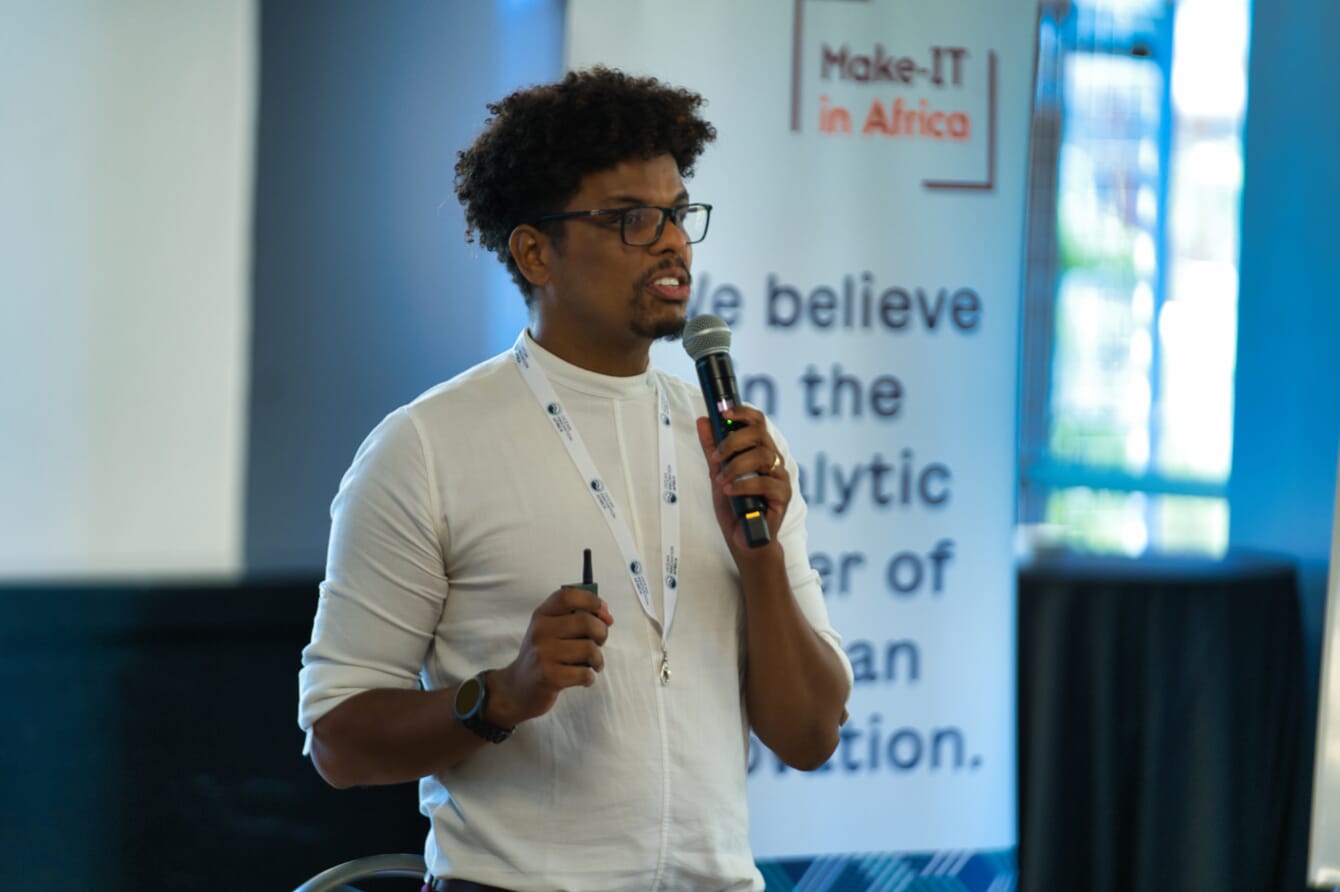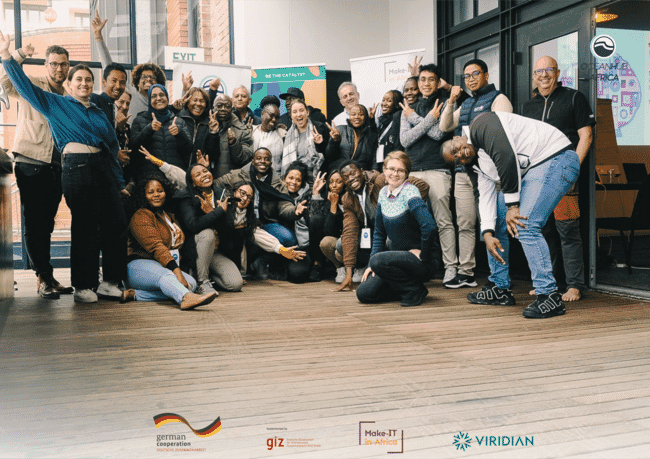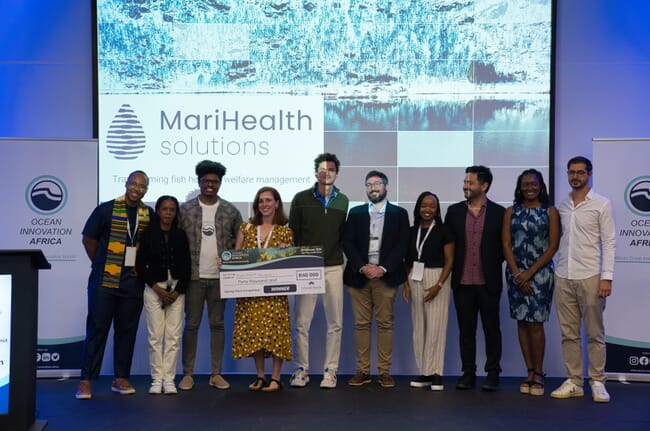
OceanHub Africa – an impact accelerator – focuses on incubating and accelerating emerging blue economy companies from across Africa. The organisation represents 62 startups, including Aquadeep, a developer of a computer-vision counters for aquaculture farms and hatcheries to provide early disease detection; Bahari Labs, which aims to reduce methane emissions via seaweed-based livestock feeds; SeaH4, which creates algae-based biofuels; and Yarsi Erre, which turns fish waste into fish oil.
At the third United Nations Ocean Conference, The Fish Site caught up with Herland Cerveaux, the hub’s managing director, to find out more.
What are some of the challenges that you see for startup financing in Africa?
When it comes to investing in African startups, money stretches. This sounds good but, for investors, it's easier to manage bigger investments. When startups are at the stage when they have a concept and they need a very small investment – between $150,000 to $300,000 – it's very hard to find.
In other countries, when these situations happen, business angels come in. They are people who believe in the sector and they believe that if they come in early they will get big returns at some point.
The profile of business angels in Africa is not the same profile as business angels in more established markets, such as Europe or Silicon Valley. They are quite risk-adverse and don't understand the blue economy sector, so they need an organisation like OceanHub Africa to raise awareness about the opportunities in the sector.
Also for some of the startups that we work with, angel investments are not the financial instruments that they need. Some of them need grants to prove their concept; some of them need loans because they already have a lineup of customers and orders and they just need some working capital in order to be able to supply that demand; and some of them just need asset financing. The problem is that today in the capital that we have, there's not enough of these other instruments compared to straight equity drivers.
What trends are you seeing in terms of the applicants to your accelerator programme?
Every year, we receive around 200 applications for our accelerator programme, so we have good visibility of what's happening on the continent. The majority of solutions that we are seeing are focused on solving issues that entrepreneurs are seeing on the ground – like tackling ocean-bound pollution, chemical pollution or plastic pollution. They are tackling these problems with ideas and how to upcycle it and to add value that can trickle down to the communities.
The other big category of ocean impact solutions we see is sustainable blue food. In particular, we see a lot of companies that are trying to help small-scale aquaculture farmers access better protein feeds. One innovation we’ve seen lately is around feed solutions like black soldier fly larvae. There are a few companies offering more environmentally friendly feeds that are not as reliant on wild fish. One company that we support is called NovFeed. They developed an internationally patented protein to accelerate the transition from organic waste to protein-rich feeds.
Can you share about Ambani Fish Leather?
They take waste from the fish industry and then they upcycle it into premium fish leather. It is a high-end, environmentally friendly leather that can substitute classic leather which can be quite harmful to the environment and ocean ecosystems because of the all the chemicals. I’ve touched it and it smells great and ages quite well.
I find this company to be very exciting because they offers a solution that is at the nexus between the blue economy and the creative sector. The creative sector receives some of the most investments in Africa. I like the idea of upcycling something that has little value to the blue economy and then making it into something that is quite expensive.

© Ocean Hub Africa
What are some challenges you see facing African aquaculture?
One issue that comes up with sustainable seafood in Africa is anything related to cold chain infrastructure. We are talking about a continent where there is a lack of access to consistent energy.
Like Kuza Freezer in Kenya, a sustainable fish value chain company, with solar-powered cold storage?
Yes. We are seeing more innovations like that. The reality of things in Africa is that because of the lack of infrastructure, one out of three fish goes to waste because of the lack of cold chain infrastructure.
Do you see other companies tackling the cold chain infrastructure hurdle - and does that help African aquaculture?
There are many companies trying to tackle this cold chain infrastructure issue for the small-scale fisher community, especially in West Africa, East Africa or Southern Africa. One Kenyan company last year won the Earthshot prize called Keep it Cool.
One issue that we’re seeing with these solutions though is that they are quite capital-intensive. They require a lot of money to take off because there is a lot of infrastructure involved. Most of these innovators are tackling the problem the same way. I’d like to see a different type of innovation – like an Uber system that could enable people with cold infrastructure at their home to rent a portion of their freezer to small scale fishers. We haven’t seen that yet.
What aquaculture companies have the most promise outside of Africa? Where exactly is a target market?
Most of the startups in our portfolio who are targeting high value markets are looking to the Middle East. The Middle East is close enough to Africa and there is a high demand of high quality seafood.
How does OceanHub Africa operate across so many languages, geographies and cultures?
There are 54 countries, with 38 island and coastal nations,13 million square kilometres of Exclusive Economic Zone. But it is a market that is very fragmented and in development. There are definitely lots of challenges and you need to adjust your approach for this specific context. OceanHub Africa overcomes this challenge by working in partnerships.
We are building a network of incubators around Africa that we can rely on in order to have a deeper understanding of some markets. We also work with a network of mentors that are in these different countries that can give us a bit of insight so that we make sure that any suggestions that we're making for business development are aligned with the reality of the market.
Collaboration is key. That is why – in addition to an accelerator and an entrepreneurship support organisation – we also position ourselves as an ecosystem builder and an ecosystem convener. Given how vast the continent is, without this ecosystem support, we won't achieve tangible impact.
You mentioned a gap in the $150,00 to $200,000 range of funding. Where is that on a company's trajectory?
The challenge is in the pre-seed stage. There are very limited resources when it comes to making sure that someone coming up with an innovative idea gets that initial funding for the trial and error stage.
Education is not free in Africa, plus there’s no unemployment money. It's a lot for innovators to carry on their shoulders. They both need to find that initial investment – which is hard – and at the same time, sustain themselves and make a living.
By the middle stage, if a company has a successful pilot and can show that they have market traction and that the market is big enough, then it becomes more feasible to find this capital. There's more and more investors positioning themselves at Series B or higher who would like to see pipeline from Africa. But that beginning pre-seed money is missing.
I’ll give you an example. Kumbatia Seafood is a company that trains small scale fishers on the Swahili coast to handle fish and which they then super freeze in order to sell sushi-grade fish to high value markets like the Middle East or the United States. We worked with them and they were able to raise a significant amount of money because they were connected to investors looking for impact. The role of organisations like OceanHub Africa is to make sure these companies are not wasting their time talking to investors that are not aligned on vision. We also want to make sure investors are seeing the kinds of companies they are interested in investing in.
In the ocean space, whether it is in Africa or even outside of Africa, that missing beginning is usually funded by a philanthropic organisation. But the reality is that out of all of the philanthropic money, only one percent is going to ocean sustainability, so we don't have much to play with.

© Ocean Hub Africa
Looking at the blue economy, do you see a struggle with investors who are expecting a huge return in a short time? That is an issue that seaweed companies are facing in the US, which has led to a lot of closures.
This is a massive issue in the sector globally, not only in Africa. We need patient capital. Investors need to be able accept less return than if they were investing in AI.
Is it for all investors? No, not at all… there are more investors who are blending mechanisms between philanthropy and more classic investment funding mechanisms, which enable them to have long-term partnerships with startups.
One example is Builder's Vision. Look at how they supported Coral Vita and now they are helping them close their Series A. It is a coral conservation company – initially it wasn’t even known how they could make ocean conservation profitable, but last year they had more than $2 million of revenue. That is that perfect example of what patient capital can help to achieve.
Are you positive about the future?
First and foremost, to work in this space, you need to be optimistic. I'm pleased to see more players coming into the game and helping to finance that transition to a blue economy. I see that as a good sign.
It's good to have the money, but we also need to have the money going to the right people. Right after UNOC, I felt that there are big corporate and public-backed funds that are willing to invest in the blue economy. That is great, but some of these bigger funds are looking for a big ticket item, not a smaller, locally-led initiative. At the same time, some of these smaller initiatives are not well-equipped to receive huge investments. I believe that accelerators and incubators are among the vehicles that can help bridge this gap between international funding and high potential local initiatives.




